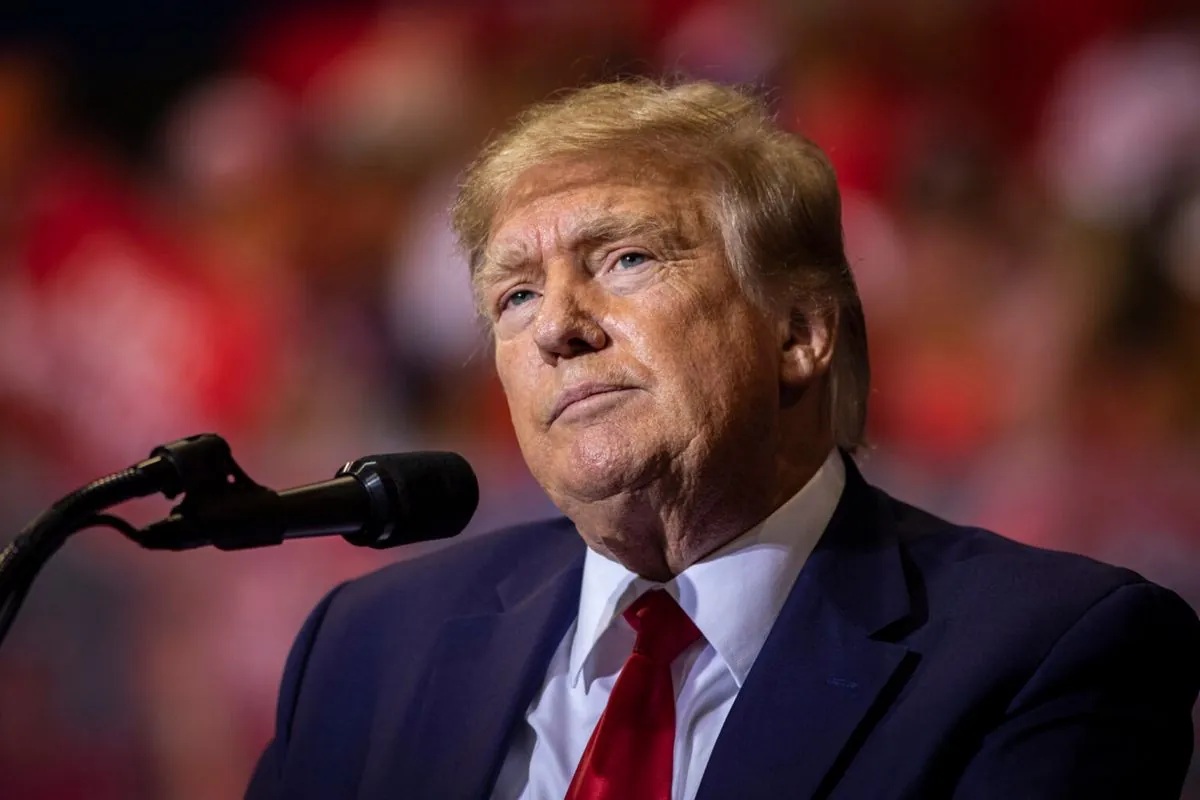As Election Day approaches, the Republican Party is undergoing a significant shift in its messaging on abortion. This change comes in the wake of the Supreme Court's decision to overturn Roe v. Wade in June 2022, a landmark ruling that had protected abortion rights nationwide since 1973.
Donald Trump, who appointed three conservative justices to the Supreme Court during his presidency, is now attempting to moderate his stance. In a recent social media post, he declared he would veto a federal abortion ban, stating that the issue should be decided by individual states. This marks a departure from his previous "pro-life" position during the 2016 campaign.
Similarly, JD Vance, the Ohio Senator elected in 2022, has softened his rhetoric. During a recent vice-presidential debate, Vance implied support for a friend's decision to terminate a pregnancy in an abusive relationship, despite his previous "100 percent pro-life" stance.
This shift is not limited to high-profile figures. Several Republican House members and gubernatorial candidates are now presenting themselves as more moderate on abortion. For instance, Rep. John Duarte of California recently described himself as "pro-choice," despite having a voting record that earned positive ratings from anti-abortion groups.
In North Carolina, gubernatorial candidate Lt. Gov. Mark Robinson released an ad supporting the state's current 12-week abortion ban, framing it as a personal decision based on his own experience. However, this contrasts with his previous statements favoring a more restrictive six-week ban.
The Republican Party's evolving stance on abortion comes as public opinion polls consistently show majority support for abortion rights. A Washington Post-ABC News poll from August found that 62% of Americans opposed the overturning of Roe v. Wade. The Pew Research Center, a nonpartisan think tank, reported earlier this year that 63% of Americans believe abortion should be legal in all or most cases.
This shift in public opinion has not gone unnoticed by political strategists. David Winston, a Republican strategist, noted that the overturning of Roe v. Wade has fundamentally changed the nature of the abortion debate, turning it from a national conversation into 50 separate state-level discussions.
Democrats plan to capitalize on this Republican repositioning. Emma O'Brien, a spokeswoman for the Democratic Governors Association, stated that they will remind voters of Republicans' previous anti-abortion stances and votes.
"A woman's fundamental right of individual liberty, to her own life, grants her the authority to terminate her pregnancy if she wishes. Restricting a woman's right to choose whether to terminate an unwanted pregnancy is the same as denying her control over her own body. I have carried this belief with me throughout my entire adult life."
In an unexpected development, former First Lady Melania Trump released a video expressing support for abortion rights, contrasting sharply with her husband's political stance. This highlights the complex and evolving nature of the abortion debate within the Republican Party.
As the election approaches, with abortion initiatives on the ballot in ten states, including crucial battlegrounds like Arizona and Nevada, the issue is likely to remain at the forefront of political discourse. The Republican Party's attempt to soften its abortion stance reflects a recognition of the political challenges posed by this contentious issue in the post-Roe era.
